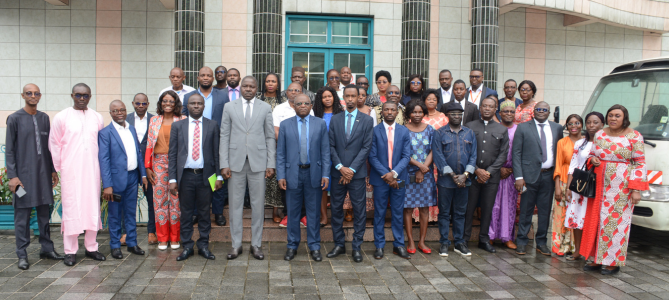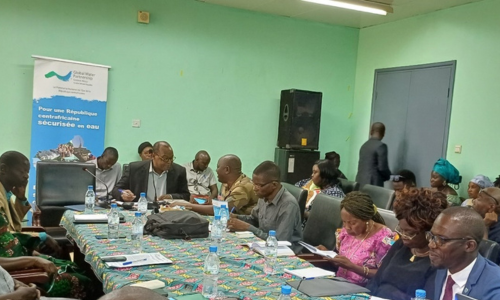Regional impact
Informing a new Water Law for Cameroon

Aware of the impact water management has on development, and on the country’s population of over 27 million people, Cameroon has revised its Water Law for the first time in nearly 25 years. The Water Law N°98/005 of 14 April 1998 was considered obsolete due to socio-economic, environmental, and institutional landscape changes.
The Ministry of Water established a committee for this task and requested GWP Central Africa to support as a technical partner. Recognising a particular need to better consider gender in legal texts and project development, GWP Central Africa delivered consultations and gender-focused training to the water and environment ministries.
The revised law will now consider the four principles of integrated water resources management and gender, amongst other key factors. It will further improve transboundary water management, help address droughts and floods, and boost the development of sectors such as energy, agriculture, and tourism. The revision process is still underway with several consultation workshops envisaged before the validation of the final revised version.
The new law is especially crucial for Cameroon’s largest river, the Sanaga River, which is awaiting the creation of a management commission. Djibrilla Mohamadou, Executive Secretary of GWP–Central Africa, says, “The creation of the Sanaga Basin Commission cannot move forward because it must be based on a legal framework; however, the current Water Law does not take this into account.” Establishing the revised law, and subsequently the Sanaga Basin Commission, will help ensure the sustainable management of a river that provides Cameroon with water, food, livelihoods, and 95% of its hydroelectricity.

Bringing water to Central African Republic’s Environmental Code

Water actors in the Central African Republic met with representatives of the environment sector who are currently revising the country’s 2007 Environmental Code, thanks to efforts by the Global Water Leadership (GWL) in a Changing Climate programme.
The programme and the Ministry of Energy Development and Water Resources, with the support of the Country Water Partnership – Central African Republic (CWP-CAR), organized a national workshop to reflect on and contribute to the revision of the Environmental Code. Through the solid relationships built by CWP-CAR, the workshop brought together 40 participants from government institutions and civil society.
Sylvain Guebanda, Chief of Mission at the Ministry of Water Resources, said, “Given the interconnectedness between the environment and water, stakeholders in the water sector must come together to reflect on and ensure that water management is a part of this revision process.”
In coming together, the stakeholders identified root causes that have hindered the resilience of water resources in the country since the Environmental Code’s adoption, and identified entry points for sustainable water resources management to be included in the revised code. A first draft of the updated code is now awaiting stakeholder validation and national adoption.

